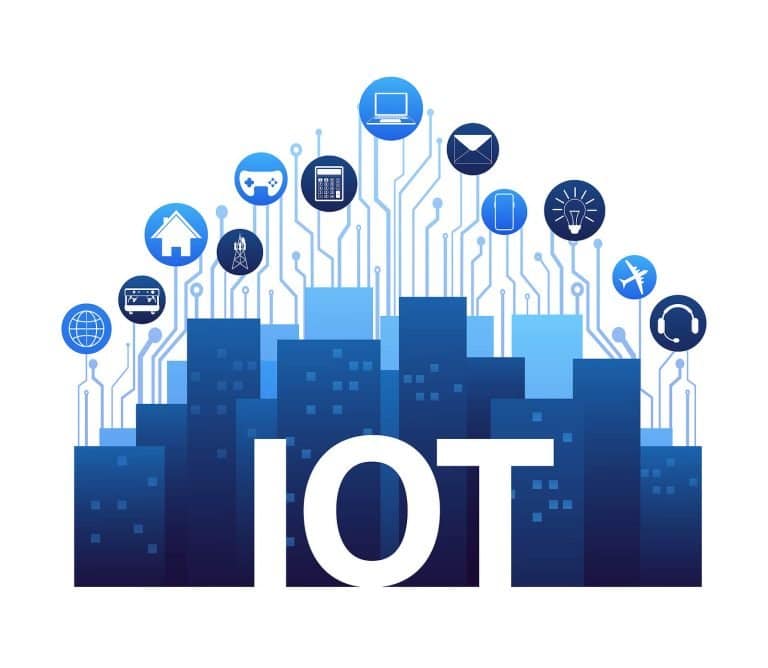Greetings, and welcome to the premiere edition of a recurring blog post series from Michael Dortch, focused on news and events affecting the evolution of the Internet of Things ( IoT ), especially but not necessarily exclusively in the industrial realm. Your thoughts, reactions, and suggestions welcome – just comment below or send a quick email to medortch@dortchonit.com. And for more on the IoT, check out “DortchOnIT’s Industrial Internet of Things (IIoT) Weekly.”
Table of Contents
ToggleMicrosoft Builds an IoT OS – But Will Users Come?
What Happened: Microsoft announced Azure Sphere OS, a Linux-based operating system designed to connect IoT devices to Microsoft’s Azure public cloud services. (Microsoft previously announced plans to spend $5 billion on Internet of Things research and development during the next five years.)
- As Data Center Knowledge reported, Microsoft chose Linux for practical reasons. Azure Sphere OS “is designed to run on a new class of microcontroller chip (MCU) with limited resources, and Windows can’t shrink down enough to fit.”
- The Microsoft-designed MCUs include Wi-Fi support, and are being offered royalty-free to IoT device manufacturers. The chips “can go in anything from toys to ‘smart home’ devices to edge-based industrial machinery.” The first chips are expected to ship later this year.
- In a blog post, Microsoft Azure Sphere partner managing director Galen Hunt said the new OS provides “a highly-secured software environment and a trustworthy platform for new IoT experiences.” Microsoft reportedly said the new chips could be used to access public cloud services from other vendors. However, it’s not clear that the chips would then have access to the Azure Sphere Security Service.
What It Means: Many current IoT devices, even those designed for industrial applications, are notoriously light on security features. The ability to enhance security of those devices via a public cloud platform could increase security and interoperability of connected Internet of Things devices. This could, in turn, ease, speed, and improve overall security of IoT deployments.
However, there are already multiple alternative embedded operating systems available. Some of these are more feature-rich, market-proven, or both than Azure Sphere OS. Amazon Web Services (AWS) and Google Cloud are both arguably more popular, proven, and widely supported by partners than Microsoft Azure. And anyone who remembers Windows CE will agree Microsoft’s track record with embedded operating systems is uneven at best.
What You Should Do: If you are an Internet of Things device manufacturer or designer, you should explore Azure Sphere OS as soon as possible. If you are already an AWS and/or Google Cloud user, you should compare Azure Sphere OS to AWS IoT and/or Google Cloud IoT. If you are a current or potential buyer, integrator, or user of Internet of Things devices or systems, you should press current and candidate suppliers for details of their security, cloud interoperability, and manageability plans and road maps.
Whatever your Internet of Things interest or involvement, you should expect announcements of similar platforms and security features from Google, IBM, and others. As IoT technologies and skills mature, there will also be more industry- and application-specific platform options for you to consider. You should start now to assess and prioritize your technology needs and skills, especially regarding interoperability with current tools and solutions, connectivity, and information security.
Alibaba Expands IoT Connectivity Alliance, Plans to Integrate Blockchain, Buys Chinese Chipmaker
Chinese online retail and e-commerce giant Alibaba has expanded its IoT efforts and initiatives.
- Alibaba operates AliCloud, which is now reportedly China’s largest provider of high-end cloud computing services. A 2018 Synergy Research Group study found AliCloud to be one of the world’s top five cloud service companies. AliCloud has signed a strategic partnership with Bosch, a global technology company that operates its own Internet of Things cloud. AliCloud also provides the support network for Phillips’ “smart home” systems.
- Alibaba formed the IoT Connectivity Alliance (ICA)in 2017. That organization is focused on development and support of interoperable IoT standards for multiple industries. The ICA now claims some 300 members.
- As CryptoSlate reported, one of the ICA’s newest members is Xiamen Zhongchuan Internet of Things Industrial Research Institute. That group is a subsidiary of Waltonchain, a “logistics-based blockchain project.”
- The ICA plans to integrate Waltonchain blockchain technologies into its evolving IoT ecosystem. Those technologies “will improve manufacturers ability to validate, maintain and verify their products on a decentralized platform.” Waltonchain technologies can also help improve interoperability and security of networks connecting Internet of Things devices from multiple manufacturers.
- Alibaba also announced it has acquired Hangzhou C-SKY Microsystems, a leading Chinese chipmaker in which Alibaba had invested previously. As VentureBeat reported via Reuters, an Alibaba spokeswoman said the company “’aims to empower different industries through our cloud-based IoT solutions, in which chips play a significant role.’”
What It Means: Blockchain technologies first helped to make cryptocurrencies anonymous and secure. Companies across multiple industries are now integrating blockchain technologies into their networked solutions to improve data security. Adding Waltonchain technologies to the ICA’s efforts should provide a significant boost to blockchain adoption and IoT security among ICA member companies. And the acquisition of a chipmaker implies plans to deliver combinations of chips and cloud-based resources that could accelerate IoT deployments.
What You Should Do: Follow the ICA’s progress closely, especially if you do significant business in China or with Chinese business partners. Look for other IoT alliances and consortiums, such as the Industrial Internet Consortium, to integrate blockchain technologies into their evolving frameworks and proposed standards.
If you design or manufacture IoT solutions, ensure that they are flexible and interoperable enough to support robust security and connectivity, especially as standards for these emerge and mature. If you are a current or potential buyer, integrator, or user of Internet of Things solutions, focus on those from companies with clear commitments to security and connectivity standards adopted and supported by leaders in your industry.
You can read more of Michael’s thoughts on the Internet of Things here






